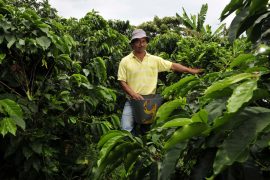HealthTech, MedTech, FinTech, and other verticalized subgroups of startups have been carving out their own niche ecosystems in Silicon Valley and the UK for several years, but FinTech has only just begun to establish a strong identity in LATAM,and the ecosystem is evolving quickly. Brazil and Mexico are the two main LATAM countries for FinTech opportunities due to their existing financial institutions and size.
On the heels of the 2nd global StartUp Weekend Blockchain event in Sao Paolo this December, I had the opportunity to connect with one of the organizers of the event, and explore the FinTech ecosystem of Brazil via the already extensive network of FinTech focused innovators. This article explores some of what these key influencers have been up to and where the important challenges they see ahead for the industry.
One of the lectures at the StartUp Weekend event previously mentioned, in Sao Paolo, was CEO at OriginalMy, Edilson Osorio Jr., as his company was one of the first in Brazil to use blockchain to certify digital files and web content. OriginalMy hopes to be the first to launch an ICO early next year, but spoke at the networking event in the spirit of mentorship. Mentorship is particularly important for companies dealing with emerging technologies like blockchain, and as Edilson has demonstrated by speaking at the event, it does not have to be one-on-one or take a lot of time, as being a voice of expertise during the process of creation is valuable to a group of entrepreneurs heading into uncharted territories.

Founder at Spiralem and Professor at Fundação Getúlio Vargas, Bruno Diniz
As one 0f several organizers of that same event in Sao Paulo, Founder at Spiralem, Bruno Diniz worked to get Brazil’s Abstartups Fintech Committee affiliated at The Global Fintech Hub Federation, which is an initiative founded by Innovation Finance (UK’s Fintech Association) and Innotribe, a worldwide startup ecosystem connection resource for innovation of all kinds.
Innotribe offers Startup Challenges, and since 2011, they have connected 650+ FinTech startups with resources. They report on KPIs to improve the startup ecosystem, then leverage their strategic position to stimulate debates and facilitate actions in the FinTech community. Leveraging networks for continuous improvement is a trend with importance in Brazil and elsewhere as the blockchain environment continues to grow and disrupt more industries.
Bruno mentioned in an interview with Sandhill that the disruption of royalties, medical records, education, and work experience are just the beginning and that he sees a universal document accessible by all countries in our near future. For example, expat workers, including teachers and multinational research teams, would have easier and cheaper access to working in different countries if their education and work experience were validated with a global 3rd party blockchain network.

Co-Founder and Managing Partner at both Finnovista and Startupbootcamp Fintech Mexico City, Andres Fontao
The progress of blockchain technologies in the LATAM region will rely heavily on the development of regulations of the technology. In November this year at the Miami FINNOSUMMIT, prominent FinTech leaders and policymakers in LATAM consolidated with over 300 attendees to discuss 700+ FinTech startups in the LATAM region. The future of regulation in the region was a large discussion, particularly regarding Mexico’s new FinTech Law, with many parties looking towards this front-runner to regulate electronic payments, crowdfunding, and cryptocurrencies.
Regulation is a big challenge for startups as it can be an expensive task…startups don’t have the resources or time, statedAndres Fontao, Co-Founder of Finnovista and organizer of FINNOSUMMIT.
One of the jurors at that same StartUp Weekend SP Blockchain event, Helena Margarido, is highly regarded in Sao Paulo as the managing partner at SuM Law, the first law firm in Brazil “founded and guided by and for the New Economy.”
Because SuM Law has licensed and developed exclusive solutions: a real-time system for monitoring projects, automation systems, data catcher and artificial intelligence, Helena has a working knowledge of disrupting an industry, but even more valuable is her extensive knowledge gained from over 15 years experience in law related to FinTech. Through work with “big fours, banks, offices and PE funds,” she is working hard to be a driving force in blockchain specific law and regulations and plays a key role in mentoring at events and offering participants a unique and outstanding legal resource.
And although legal regulation will be key for blockchain development in the LATAM region, when asked for a comment, blockchain innovator Kurt Akers pointed out the critical role that front-runner companies will play in the blockchain industry as it develops internationally. “Because of the infancy of our industry, certain standards that you see in other industries are slowly starting to transfer over to our industry. It is really up to companies in our industry to be forward thinking and apply standards we have seen work in other spaces.”








